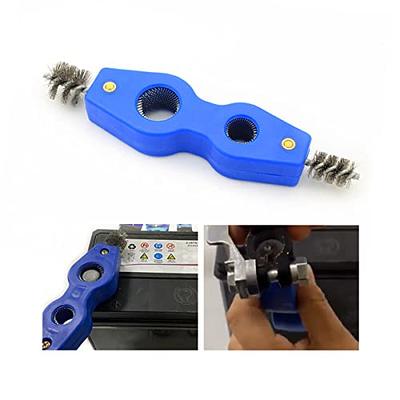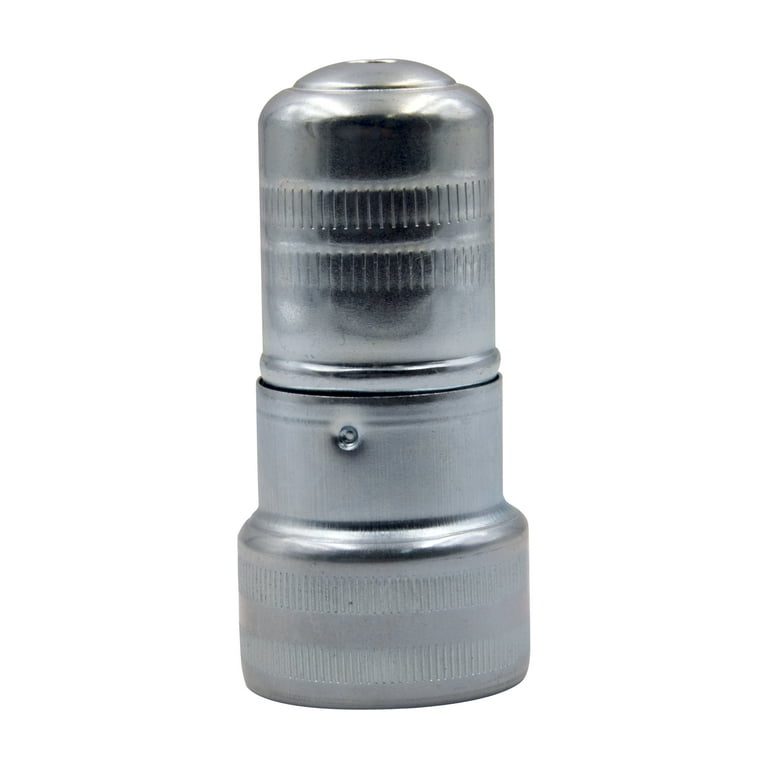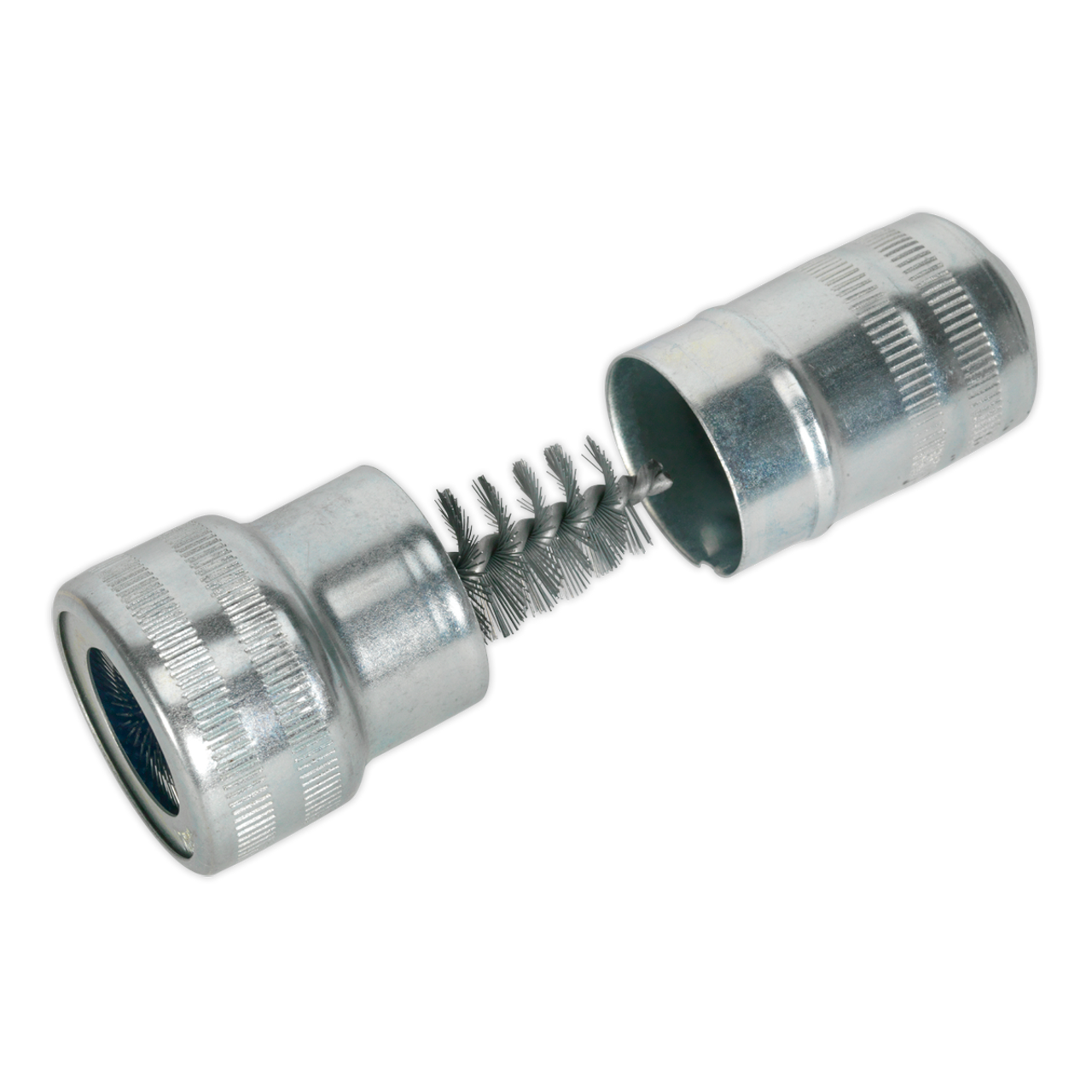Maintain Your Ride A Guide to Cleaning Car Battery Terminals
The battery is the heart of your car, and without it, your vehicle won't be able to start. The terminals that connect the battery to the rest of the car are crucial in ensuring a steady flow of electricity. Over time, these terminals can become corroded or dirty, which can lead to various problems, including difficulty starting the car, flickering lights, and even a dead battery. To avoid these issues, it is essential to regularly clean your car battery terminals. In this comprehensive guide, we will discuss everything you need to know about car battery terminal cleaners and how to use them effectively.
Revitalize Your Battery: The Benefits of Cleaning Battery Terminals

Cleaning your car battery terminals not only helps maintain the overall appearance of your vehicle but also has several practical benefits. Here are some reasons why you should make sure your battery terminals are always clean:
- Improved Performance: Corroded or dirty battery terminals can interrupt the flow of electricity, causing your car's performance to suffer. Maintaining clean terminals ensures that the battery can deliver the necessary power to start the engine and keep your car running smoothly.
- Longer Battery Life: When corrosion builds upon the terminals, it acts as an insulator, preventing the battery from charging properly. As a result, your battery may drain faster, leading to a shorter lifespan. Regularly cleaning your battery terminals can extend the life of your battery and save you money in the long run.
- Prevent Electrical Problems: Dirty terminals can cause electrical issues in your car, such as flickering lights or malfunctioning sensors. By keeping your battery terminals clean, you can prevent these problems and avoid costly repairs.
- Safer Driving: A buildup of corrosion on the battery terminals can create sparks, which can be dangerous when working around the battery. Keeping your terminals clean minimizes the risk of an electrical fire or explosion.
Essential Equipment for Cleaning Car Battery Terminals

Before you start cleaning your car battery terminals, it is essential to gather the necessary equipment. Here are some items you will need:
- Baking Soda: As mentioned earlier, baking soda is an effective and inexpensive cleaner that can remove corrosion and dirt from battery terminals.
- Vinegar: Another alternative to baking soda is vinegar. It is also a mild abrasive and has similar cleaning properties.
- Commercial Battery Terminal Cleaner: You can also opt for a specialized battery terminal cleaner available in the market. These products are specifically designed to clean battery terminals and may be more effective than using homemade solutions.
- Wire Brush: A wire brush is necessary for scrubbing the terminals and removing any buildup effectively.
- Gloves and Eye Protection: When handling battery terminals, it is crucial to protect yourself by wearing gloves and eye protection. Battery acid can be corrosive, and you should avoid contact with your skin or eyes.
Step-by-Step Guide to Cleaning Car Battery Terminals

Now that you have all the necessary equipment let's dive into the step-by-step process of cleaning your car battery terminals:
Step 1: Disconnect the Battery Cables Start by disconnecting the negative (black) cable from the battery terminal. This will prevent any electrical accidents from occurring while you clean the terminals.
Step 2: Mix the Cleaning Solution In a small container, mix equal parts water and baking soda or vinegar. Stir until the solution forms a paste-like consistency.
Step 3: Apply the Cleaning Solution Using a wire brush, apply the cleaning solution onto the battery terminals. Gently scrub the terminals until all the corrosion and dirt are removed.
Step 4: Rinse with Water Once the corrosion has been removed, rinse the terminals with clean water. Make sure to dry them thoroughly before proceeding to the next step.
Step 5: Apply a Corrosion Inhibitor To prevent future corrosion, you can apply a corrosion inhibitor onto the terminals. This will act as a protective coating and extend the life of your battery.
Step 6: Reconnect the Battery Cables After the terminals are completely dry, reconnect the negative (black) cable to the battery terminal.
DIY vs. Professional Cleaning: Which Option is Right for You
While cleaning car battery terminals can be a DIY task, there are times when it may be better to leave it to the professionals. Here are some factors to consider when deciding between doing it yourself or hiring a professional:
- Time and Effort: Cleaning battery terminals can be a time-consuming and labor-intensive task. If you have limited time or prefer to avoid the hassle, hiring a professional may be a better option.
- Knowledge and Experience: Professionals have the necessary knowledge and experience in handling battery terminals. If you do not feel confident in your abilities or are worried about making a mistake, it may be best to seek professional help.
- Cost: DIY cleaning solutions such as baking soda and vinegar are inexpensive compared to commercial battery terminal cleaners. However, if you are dealing with severe corrosion or damage, a professional service may be more cost-effective in the long run.
Troubleshooting Common Issues with Car Battery Terminal Cleaning
Even with proper maintenance, sometimes issues can arise when cleaning your car battery terminals. Here are some common problems and how to troubleshoot them:
- Stubborn Corrosion: If the corrosion on your battery terminals is stubborn and difficult to remove, you can try using a specialized battery terminal cleaner. These products are designed to be stronger and may be more effective in removing tough corrosion.
- Damaged Terminals: If the battery terminals are damaged or corroded beyond repair, it may be necessary to replace them entirely. It is crucial to address any damage as soon as possible to avoid further problems.
- Incorrect Reconnection: If you have accidentally connected the battery cables in the wrong order, your car may not start. Double-check that the positive (red) cable is connected first and then the negative (black) cable.
Preventive Maintenance: Tips to Keep Your Battery Terminals Clean
Cleaning your battery terminals should be a part of your regular car maintenance routine. Here are some preventive measures you can take to keep your terminals clean:
- Inspect Your Battery Regularly: Make it a habit to inspect your battery regularly for any signs of corrosion or dirt buildup. The sooner you catch these issues, the easier they will be to clean.
- Check Your Charging System: A malfunctioning charging system can cause your battery to overcharge, leading to corrosion on the terminals. It is essential to get your charging system checked regularly by a professional mechanic.
- Protect Your Battery from Extreme Temperatures: Exposure to extreme temperatures can accelerate corrosion on your battery terminals. Parking your car in a garage or shaded area can help prevent this issue.
Extend Battery Life: The Impact of Clean Battery Terminals
Regularly cleaning your battery terminals can significantly impact the lifespan of your battery. By ensuring proper electrical flow, you can extend the life of your battery and save money in the long run. Here's how often you should clean your battery terminals based on the type of cleaner you use:
- Baking Soda or Vinegar: It is recommended to clean your battery terminals every 3 to 6 months if you are using baking soda or vinegar.
- Commercial Battery Terminal Cleaner: If you are using a specialized battery terminal cleaner, you can clean your terminals every 6 to 12 months.
Remember, these recommendations may vary depending on how often you drive your car and the conditions in which you drive.
Safety First: Precautions When Cleaning Car Battery Terminals

Working with car batteries can be dangerous, and it is crucial to take precautions to protect yourself. Here are some safety tips to keep in mind when cleaning your car battery terminals:
- Wear Protective Gear: Always wear gloves and eye protection when working with battery terminals to prevent any accidental contact with battery acid.
- Avoid Sparks: Make sure to disconnect the negative (black) cable first and reconnect it last. This will minimize the risk of sparks occurring.
- Proper Disposal of Old Batteries: If you are replacing your battery, make sure to dispose of the old one properly. Contact your local recycling center for instructions on how to dispose of old batteries safely.
Industry Insights: Best Practices for Car Battery Terminal Cleaning

To ensure optimal performance and safety, here are some best practices for cleaning your car battery terminals:
- Use a Wire Brush: A wire brush is an essential tool for cleaning battery terminals effectively. Make sure to use a sturdy brush that can withstand the pressure of scrubbing.
- Follow Instructions: Whether you are using a commercial cleaner or a homemade solution, always follow the instructions carefully to avoid any mishaps.
- Don't Overdo It: While it is essential to clean your battery terminals regularly, be careful not to overdo it. Excessive scrubbing can damage the terminals and lead to bigger problems.
Conclusion
Your car battery is the lifeline of your vehicle, and keeping it in top condition is crucial for its overall performance. Regularly cleaning your battery terminals is a simple and inexpensive way to maintain your car's health and extend the life of your battery. By following the steps and tips outlined in this guide, you can ensure that your car battery terminals are always clean and ready to keep your ride running smoothly. Remember to prioritize safety and proper maintenance to avoid any issues and enjoy a smooth driving experience.



